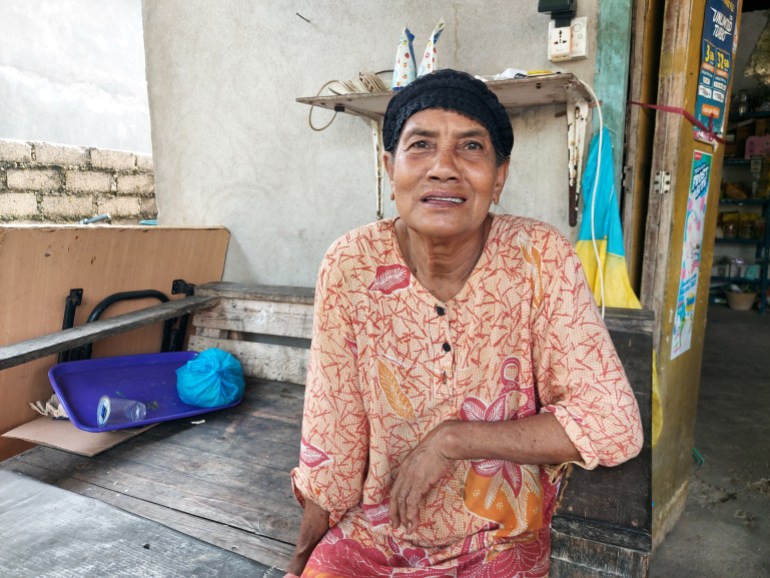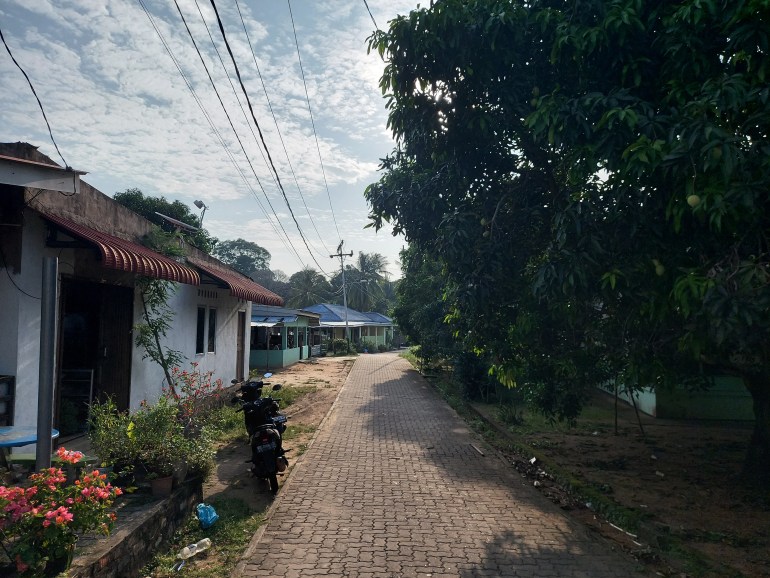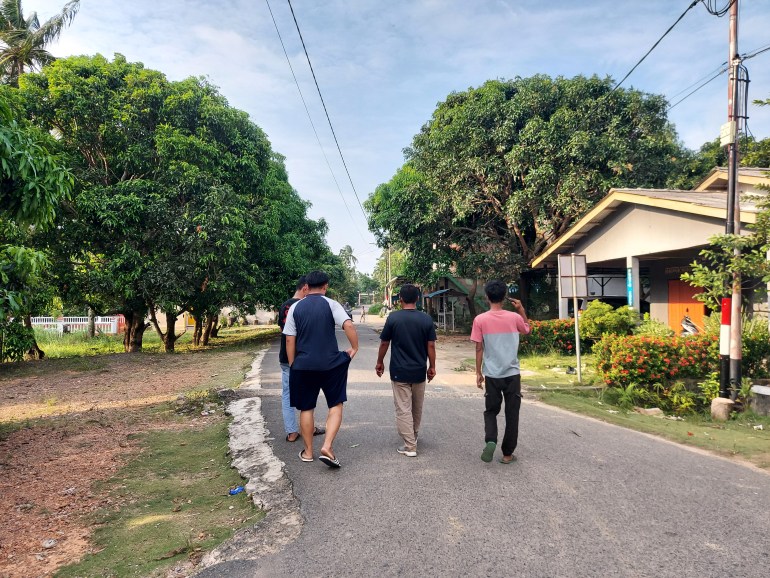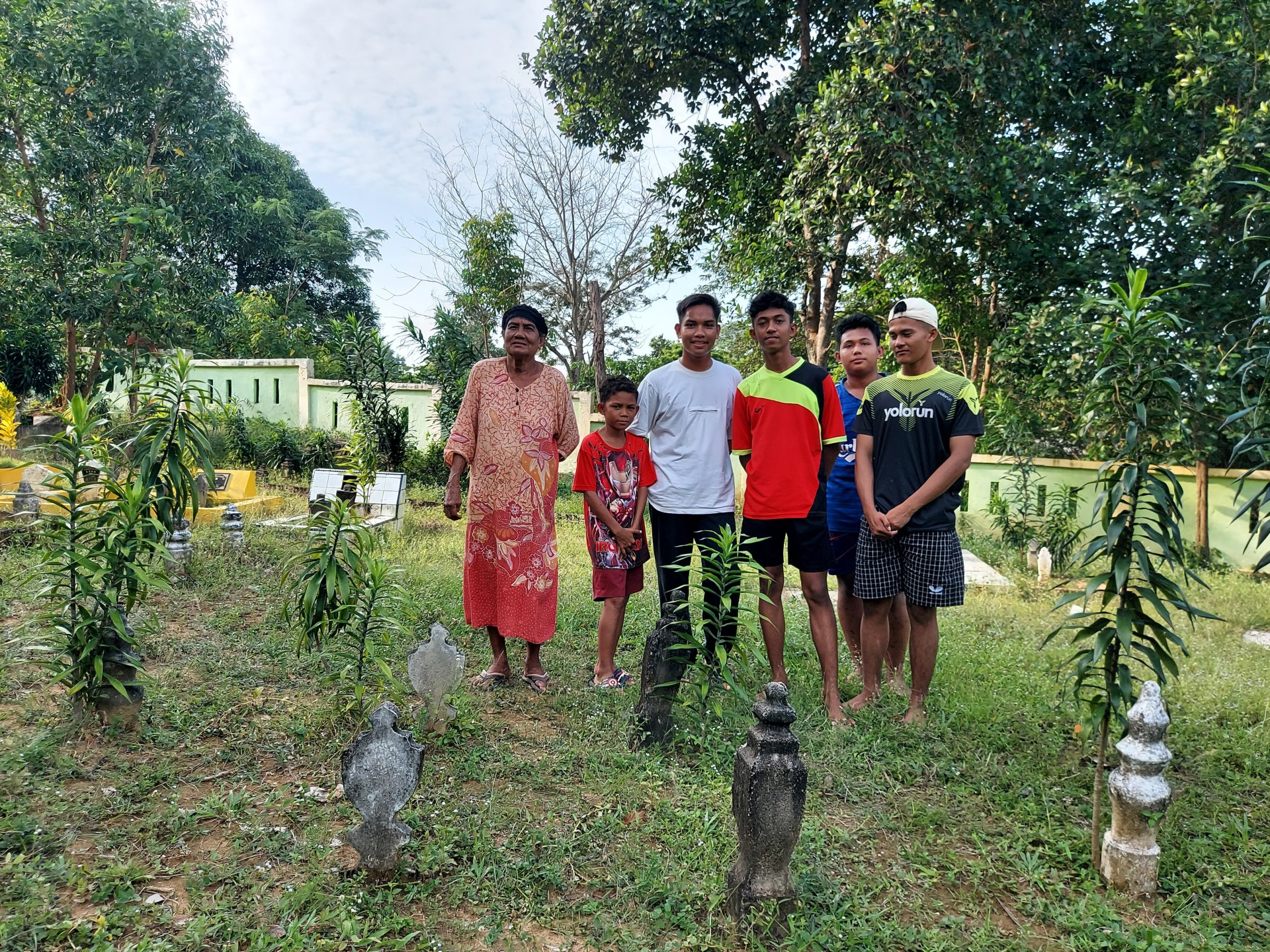Rempang, Indonesia – Eighty-year-old Halimah was born in Sembulang on the island of Rempang in Indonesia’s Riau Islands province and spends her days pottering around the sleepy fishing district, cooking fresh seafood for her grandchildren and enjoying her retirement.
It is important to her that she dies there, too.
“I want to be buried in the local graveyard, next to my datuk [grandfather] and my other family members,” she told Al Jazeera.
Halimah worked as a domestic helper in nearby Malaysia for 20 years before she chose to return.
“This is my home, and this is where I want to die,” she said. “I love this place more than anything.”
But Halimah’s wish to live out her final years in Sembulang is now in jeopardy due to Indonesian government plans to evict the island’s 7,500 residents and build a multibillion-dollar Chinese-owned glass factory and ‘Eco-City’.
The authorities have given residents until September 28 to move out of their homes and into government-built houses some 60km (37 miles) away – and inland.

The glass factory and Rempang Eco-City are a joint project between the Batam Indonesia Free Zone Authority (BP Batam) and a local company, PT Makmur Elok Graha (MEG), in partnership with China’s Xinyi Glass – the world’s largest glass and solar-panel maker.
Xinyi has pledged some $11.6bn to the glass and solar panel manufacturing factory, and Indonesia’s Investment Minister Bahlil Lahadalia has said that the project will create some 35,000 jobs and net some $26.6bn of investments by 2080.
But the residents of Rempang see little to celebrate in promises of investment that will mean they lose their childhood homes.
“When I was a child, there was nothing here, just jungle,” Halimah said. “There were no schools or villages, no motorbikes or mobile phones. We were here before all of that.”
“Now the government says we have to move, but what about us old people? I am so scared.”
‘Far from humanitarian’
It is not just Sembulang’s older residents who are concerned.
In recent months, thousands of people have taken to the streets of Rempang and the neighbouring island of Batam, to show their opposition to the project. Police have responded with tear gas and water cannons, and arrested dozens. Demonstrations have also been held outside the Chinese embassy in Jakarta.
Thirty-year-old Hendra, who did not want to give his real name or occupation for fear of reprisals, told Al Jazeera that the Eco-City project and relocations “threatened the culture and way of life of the residents” in the area.
Hendra is the eighth generation of his family to live in Sembulang, and he views the land as an inheritance from his ancestors. Like the majority of residents of Rempang, Hendra is Malay, an ethnic subgroup in Indonesia that makes up about four percent of the country’s 270 million population.
“The government has been far from humanitarian and the intimidation that we have faced to get us to move has been extraordinary,” he said. “We have been just viewed as objects, not real people.”

Part of the government’s justification for the evictions is that the residents of Rempang are not considered the legal owners of their land because they do not have official land ownership certificates.
All those years ago, when the first generation of residents moved to the then-uninhabited island of Rempang, it was considered government-owned land and continues to be seen that way by the authorities.
The ‘Eco-City’ has been classified as a project of “strategic national importance” by the government, which means that, under Indonesia’s land rights legislation, it is entitled to seize the land provided it gives residents appropriate financial compensation and alternative accommodation.
However, human rights groups argue that Rempang’s residents are still protected from eviction under Indonesian law.
Boy Sembiring, the head of the Indonesian Forum for Environment for Riau, told Al Jazeera that Indonesia’s constitution, drafted after independence from the Dutch in 1945, recognises the existence of traditional communities.
“You can’t just move people. When the state seizes land in the name of public interest, it is absurd and clearly an unconstitutional act,” he said.
He added that the legality of land rights in Indonesia also refers to factual evidence of control and the history of the origin of the land, rather than relying on legal certification.
In that sense, the graveyard that Halimah wants to be buried in is an important piece of the historical record showing Rempang’s residents have lived on the island for generations.

In addition to the local cemetery, Sembulang, and other districts in Rempang, are equipped with government health clinics and schools, all further evidence that the authorities have long recognised the islanders as legitimate residents rather than illegal squatters, according to law experts.
In 2019, as he campaigned for a second term in office, Indonesian President Joko Widodo also promised to secure the residents of Rempang legal land ownership certificates.
“They are absolutely legal residents,” Edy Kurniawan, an advocacy specialist at Indonesia’s Legal Aid Foundation, told Al Jazeera. “We have found documentation of residents being provided with Indonesian Identity Cards [KTP] as far back as 1934.”
“They are protected by law and, if they are forcibly removed from their homes, it will be a grave human rights violation. For these people, their land is not about economic value but about deep cultural, religious and social ties to the area.”
“But when the government says something is of strategic national importance, all the rules are just passed over,” he added.
A soft approach
Despite the growing opposition to the project, the government appears determined to go ahead with the Eco-City.
Three government ministers travelled to Batam last weekend to try and persuade the residents to move voluntarily before the September 28 deadline.
The ministers included the investment minister, Lahadalia, the Minister of Agrarian Spatial Planning and National Land Agency, Hadi Tjahjanto, and the Minister of Home Affairs, Tito Karnavian.
They also held meetings on other issues related to the project.
“Thank God, we have made several agreements, which will be discussed with the local residents,” Lahadalia said. “We must continue to give appreciation to the people who have been there for generations, and we will communicate properly and appropriately with them.”
He added that the police guaranteed that “security matters will be carried out softly,” in relation to the relocations.

It remains unclear, however, what will happen if Rempang’s residents do not leave of their own accord by the end of the month.
Hendra said that refused to move from his family home at any cost.
“Whatever we need to do on September 28, we will do it,” he told Al Jazeera.
“I am ready to die if I have to.”
